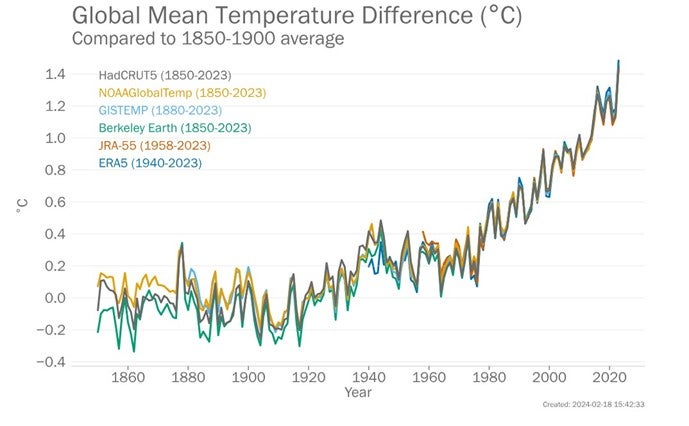Hotter nights caused by climate crisis could make sleep apnoea much more common and more dangerous by the end of the century, a new study has found.
Rising temperatures are likely to worsen obstructive sleep apnoea (OSA) – a sleep disorder already affecting nearly a billion people worldwide and linked to heart disease, dementia and early death, researchers said.
The study, led by researchers at Flinders University and published in Nature Communications, is the first to model how climate change may intensify the severity and health impact of OSA.
“This study helps us to understand how environmental factors like climate might affect health by investigating whether ambient temperatures influence the severity of OSA,” said lead author Dr Bastien Lechat of Flinders University’s FHMRI Sleep Health.
Researchers analysed more than 58 million nights of sleep data from over 116,000 people across 29 countries, recorded via an under-mattress sensor that tracked breathing disturbances during sleep.
The data, collected over several years, was then matched with hourly climate data from global climate models to simulate changes in OSA severity under different warming scenarios.
“Overall, we were surprised by the magnitude of the association between ambient temperature and OSA severity,” said Dr Lechat.
“Higher temperatures were associated with a 45 per cent increased likelihood of a sleeper experiencing OSA on a given night.”

The study found that the temperature-related increase in OSA severity was particularly pronounced in European countries compared to Australia or the US, which researchers suggest may be linked to differing access to air conditioning.
Researchers used disability-adjusted life years (DALYs) to estimate the health and economic burden of climate-exacerbated sleep apnoea. They found that in 2023 alone, rising temperatures were linked to the loss of approximately 800,000 healthy life years across the 29 countries studied.
“This number is similar to other medical conditions, such as bipolar disorder, Parkinson’s disease or chronic kidney diseases,” said Dr Lechat.
The total estimated economic loss was around $98bn, with $68bn attributed to wellbeing loss and $30bn to reduced workplace productivity.
Senior researcher Professor Danny Eckert said the sample may under-represent the real-world burden of OSA in lower-income countries, as the data primarily came from individuals in high-income regions with better access to cooling and healthcare.
“This may have biased our estimates and led to an under-estimation of the true health and economic cost,” he said.
In Australia alone, the cost of sleep-related health issues including OSA has previously been estimated at AU$66bn a year.
The team now plans to investigate potential interventions, including how access to cooling or behavioural adaptations might reduce sleep apnoea severity under warming conditions.
“Going forward, we want to design intervention studies that explore strategies to reduce the impact of ambient temperatures on sleep apnoea severity as well as investigate the underlying physiological mechanisms,” Professor Eckert said.
Without stronger global climate action, the burden of sleep apnoea is likely to rise sharply, the study warns, exacerbating public health challenges and straining economies.


